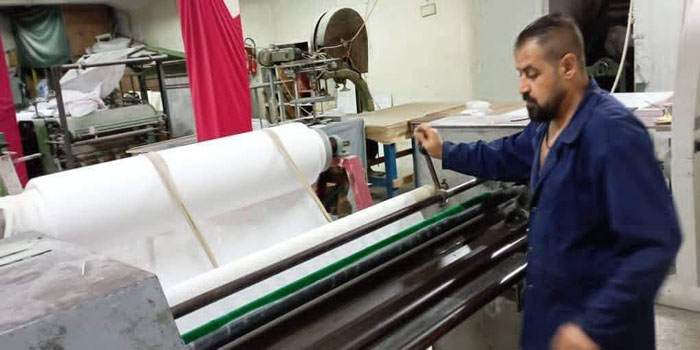Al Khumasia Company returns to the field of production as it was throughout the past decades that preceded the war years. The company was affected by terrorist attacks and the sabotage of a large part of its production lines and the destruction of its infrastructure. With the help of its workers after its liberation by the Syrian Arab army, the Company restored some production lines and started the production process to cover the needs of the local market and public authorities, especially medical cotton, gauze and fabrics.
Engineer Mustafa Hilal, the company’s general manager, confirmed in his statement to “Tishreen” daily that the company’s production value was estimated at more than 13 billion pounds over the past year. He noted that this value is in line with the capabilities available in the company, especially in light of the difficult conditions that it suffers from due to unjust economic sanctions and theft of cotton by the American and Turkish occupations and the armed terrorist gangs in the eastern region and the Aleppo region as the main reservoir for the cotton product.
Regarding the company’s investment plan, Hilal highlighted drawing up an investment plan in line with the company’s vision of returning products to the production front after they were destroyed by terrorism, especially the jacquard industry “bed sheets”. The company has developed an investment plan to renovate production lines available in the company at an estimated value of more than half a billion pounds. Hilal said that this plan is compatible with an implementation mechanism that depends on the scientific expertise and competencies available in the company, which carries out the complete restoration process.
Hilal illustrated that the company’s efforts are currently aimed at filling the shortage in manpower and expertise through government competitions and experience contracts in order to maintain the production and marketing process and implement the plan in line with the available capabilities and securing the needs of public authorities in the first place.
Inas Abdulkareem

